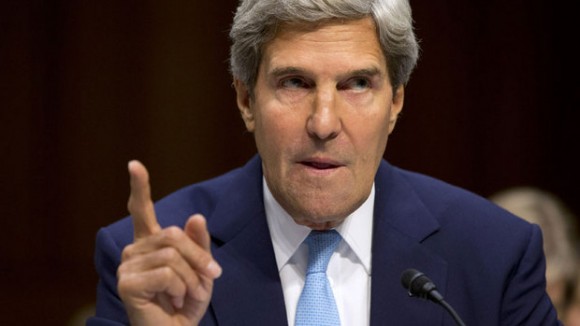
Errol Morris’s new documentary about Donald Rumsfeld, The Unknown Known, is not as valuable as his last piece The Fog of War, a similarly styled conversation with another former Secretary of Defense, Robert McNamara. The fault is not Morris’s, but Rumsfeld’s.
In The Fog of War, McNamara is guilt-ridden and reflective about his involvement in the Vietnam War and war in general. He makes damning confessions, saying the U.S. committed war crimes in WWII and talking openly about the false justifications for the Johnson administration’s escalation in Vietnam. He questions war, nationalism, the elite zeitgeist that drove the U.S. into the Vietnam calamity.
Somehow, this is satisfying to anyone who was alive and opposed the Vietnam War. And for younger generations that lived through the debacles of Iraq and Afghanistan, it was gratifying to at least know that the architects of the U.S. war machine in the highest reaches of government know deep down what they’ve done, even if they don’t admit it publicly. It’s a kind of corrective; if war criminals aren’t going to be prosecuted, their guilt-ridden hearts are a distant second to that justice.
In The Unknown Known, by contrast, Rumsfeld leaves us Iraq War opponents deeply unfulfilled. There is not a whiff of regret, not the slightest willingness to admit wrongdoing, no culpability, no self-reflection. Instead, the former Secretary of Defense is almost gleeful; it’s not enough to say he is unrepentant because the viewer can find no indication that he is aware of anything for which to repent.
Beyond Rumsfeld’s failure to feel any remorse, the real twist of the knife is that Morris can’t even get him to agree on the facts, and Rumsfeld is therefore relieved of any obligation to reckon with the contrast between the Bush administration’s claims and what were the facts.
In other words, the up close and personal Don Rumsfeld is the same wretched snake that toyed with reporters in all those infamous press conferences, in which he spewed evasive epistemological inanities like “known unknowns” and “absence of evidence isn’t evidence of absence,” instead of straightforwardly answering questions about Saddam’s pursuit of WMDs or his alleged alliance with terrorist groups.
It is this “philosophizing” of Don Rumsfeld, Morris tells Reason‘s Nick Gillespie in an interview about the project, that “is the thrust” of the whole film. It is “the devaluation of evidence,” Morris explains, that drives Rumsfeld’s approach. Instead of thinking about “fact versus fiction,” Rumsfeld “drifts off into some kind of crazy meta-talk that is seemingly significant, but is not.”
Morris says he believes Rumsfeld is not a trickster, but rather that he believes his own nonsense, or at least is unperturbed by it. “Who is kidding whom?” Morris asks. “I think he’s kidding himself.”
A rabid dog that mauls a toddler to pieces may not be aware of what he has done, but he will still be put down. Rumsfeld, on the other hand, will live out the rest of his life in this freewheeling oblivion without threat of punishment.
The film is infuriating, but it is worth a watch. You can see Gillspie’s interview with Morris below.




